Section 260A(1)(a) of the Corporations Act 2001 (Cth) (the Act) generally prohibits companies from providing financial assistance to an existing or proposed shareholder for acquiring shares in itself or its holding entities.
There are, however, exceptions to this general rule, which include:
- the giving of the financial assistance would not materially prejudice the:
- interests of the company or its shareholders; or
- company’s ability to pay its creditors; or
- the financial assistance falls in an exemption under section 260C of the Act (for example, the company is providing a lien on partly-paid shares, or the company is a bank providing a loan in its ordinary course of business); or
- the company’s shareholders approve the assistance (known as whitewashing).
The High Court case of Connective Services Pty Ltd v Slea Pty Ltd [2019] HCA 33 illustrates the dangers in forming a view that the proposed financial assistance would not materially prejudice the relevant persons.
The Court also took a very broad view of what it means to acquire shares and the type of financial assistance which is captured by section 260A of the Act, including paying a dividend by means other than by payment of cash, granting security, agreeing to pay consultancy fees and costs incurred by a company to enforce pre-emptive share sale provisions under a Shareholders Agreement.
Whilst a breach of the financial assistance provisions will not invalidate a transaction, it will expose the officeholders of the company and parties involved in the transaction (including financiers) to potential penalties, including criminal penalties where the breach is dishonest.
An effective way to avoid breaching section 260A is seeking shareholder approval pursuant to section 260B of the Corporations Act, being the Whitewash process.



























